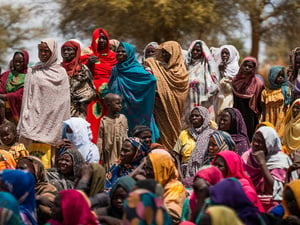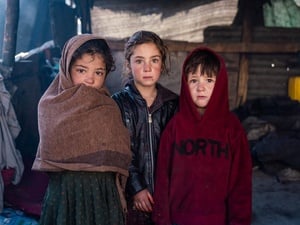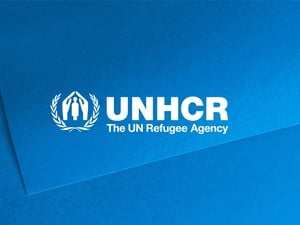Nearly 190,000 people displaced by fighting in Pakistan's Bajaur area
Nearly 190,000 people displaced by fighting in Pakistan's Bajaur area
Some 190,000 people have been displaced from Pakistan's Bajaur agency bordering Afghanistan since fighting started in mid-August. This number includes over 168,000 Pakistanis now sheltering in their country's North West Frontier Province (NWFP) and over 20,000 Pakistanis and Afghans who fled into eastern Afghanistan's Kunar province.
The large majority of the displaced people are staying with host families on both sides of the border. UNHCR cannot access most of these areas for security reasons, and relies on government estimates.
In Pakistan, authorities say there are 168,463 internally displaced people (IDPs) in NWFP. We cannot verify this figure as population movements are fluid and registration is ongoing in the 10 official IDP camps. Last Friday, UNHCR signed an agreement with the NWFP government to extend registration to IDPs living with host families. Once completed, the registration will give a clearer picture of the scale of displacement and the immediate needs.
As the lead agency for emergency shelter, protection and camp management, UNHCR is trying to improve conditions in camps by providing urgent shelter and relief materials, as well as technical support to the government camp managers.
We are helping to develop the former Afghan refugee village of Katcha Gari in Peshawar into a proper IDP camp with basic standards and services. So far, we've provided 900 tents, 750 plastic sheets, over 2,200 blankets, nearly 1,500 jerry cans and 750 kitchen sets to the new arrivals at this camp. Other agencies are establishing latrines, washrooms and water tankers.
Efforts are also underway to decongest overcrowded IDP sites. An additional site is being developed to host another 750 families at the former refugee village of Jalozai in Nowshera district, close to Peshawar.
Across the border in Afghanistan's Kunar province, UNHCR and its partners have been assisting the 20,700 people who have fled the Bajaur conflict in the last two months. Over 60 percent are Pakistanis and all are living with relatives and host families. UNHCR and other agencies have provided them with relief items, food packages and medical kits.
We have not seen a substantial rise in the number of Afghan returnees following an announcement by the Pakistani authorities in early October that all Afghans must vacate Bajaur Agency by 11 October. The last Afghan refugee villages in Bajaur were closed in 2005 and no Afghan was registered there in the 2006-2007 registration. However, should there be any registered Afghans who subsequently moved to Bajaur, we are appealing to the Pakistani authorities to let them relocate to other areas in Pakistan or to repatriate voluntarily with UNHCR assistance.








